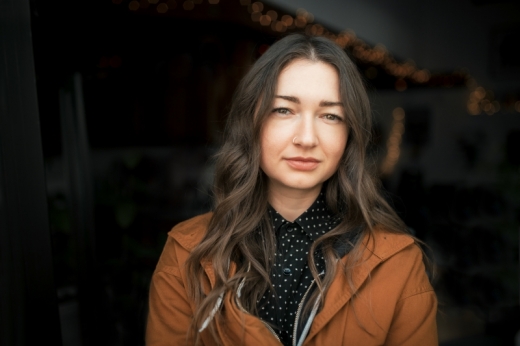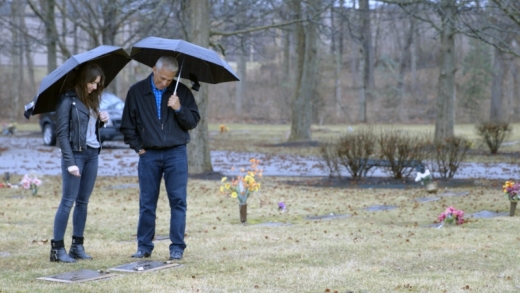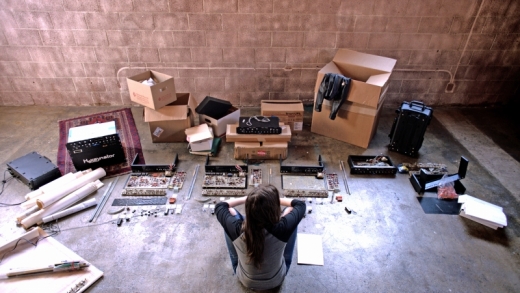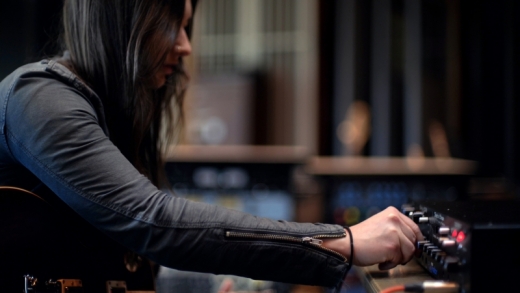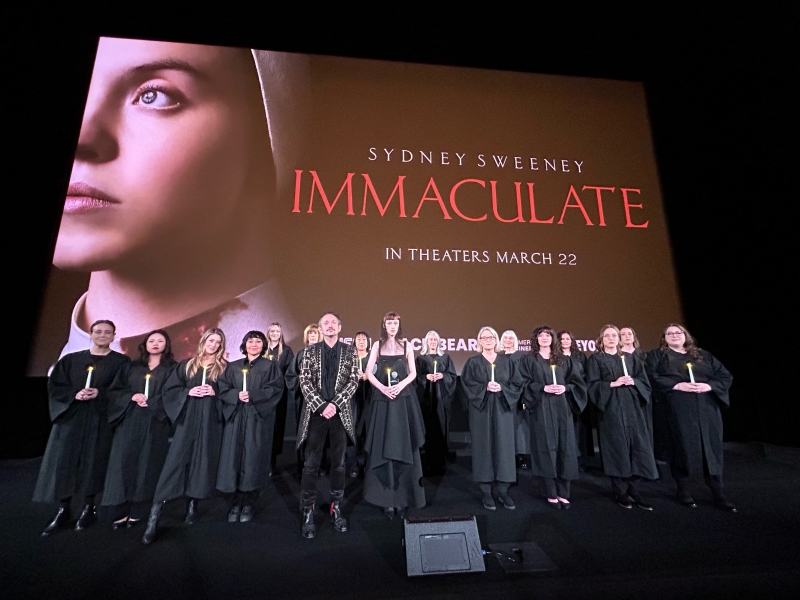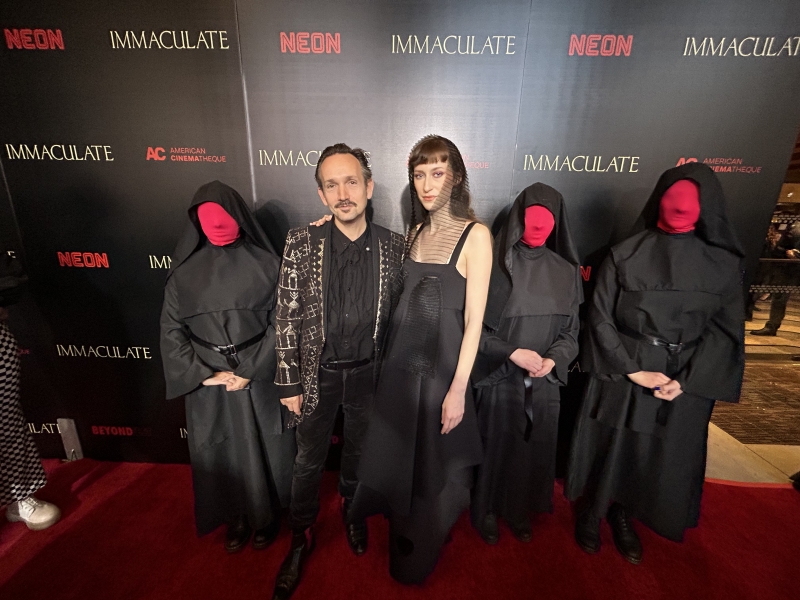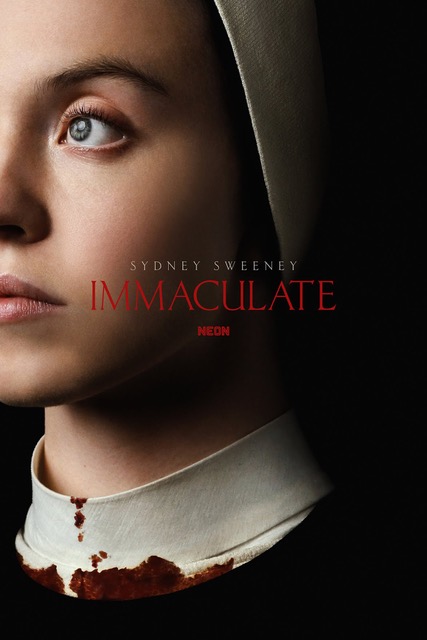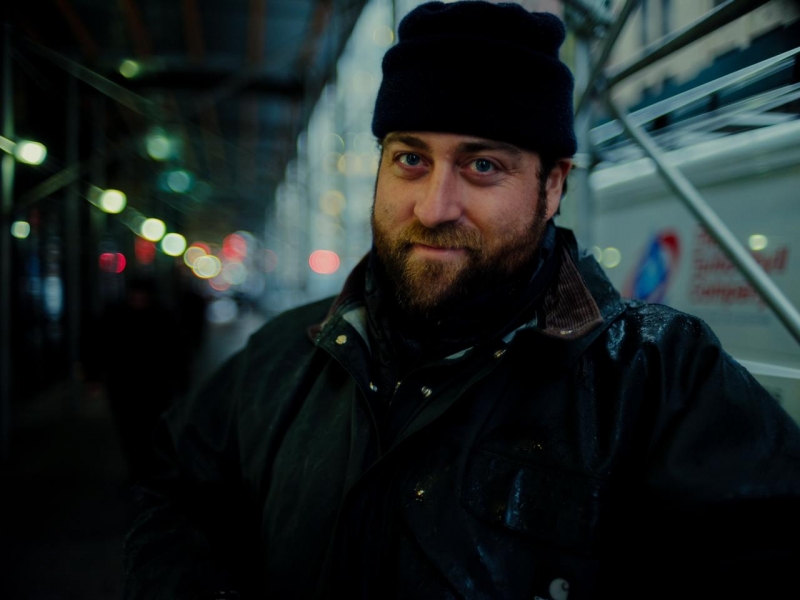|
|
||
|
Pro Tools
FILMFESTIVALS | 24/7 world wide coverageWelcome ! Enjoy the best of both worlds: Film & Festival News, exploring the best of the film festivals community. Launched in 1995, relentlessly connecting films to festivals, documenting and promoting festivals worldwide. Working on an upgrade soon. For collaboration, editorial contributions, or publicity, please send us an email here. User login |
Interview With Filmmaker Alison Tavel For Debut Doc Feature Film RESYNATOR (2024), SXSW World Premiere
RESYNATOR is a feature documentary film and synth resurrection project started by director Alison Tavel in 2014. The true story centers around a resurrected synthesizer (aka the RESYNATOR), that was invented by Alison’s late father Don Tavel in the ‘70s, which she dug up from her grandmother’s attic twenty-five years after his passing and has been on a mission to share it with the world ever since. RESYNATOR had its world premiere at SXSW on March 10th, 2024, and won the Documentary Feature Audience Award.
In an interview with Alison about her filmmaking journey, here is what she had to say: Can you tell us how the seeds for Resynator began and at what point you decided to turn it into a film? ALISON: Originally, I was just looking to document the resurrection of the synthesizer that my late father had invented. I didn’t have a background in filmmaking, but I thought it was an interesting enough story to be able to share with my friends on tour. I worked for Grace Potter on tour at the time and met so many musicians and touring crew members who were interested in learning more about the Resynator, so I felt I should make a short doc about it. From there it snowballed into a personal narrative that was much deeper than I had originally intended, and I learned how to make a film as I embarked on this journey.
What do you love about docs that features cannot do? ALISON: I think the great thing about documentary storytelling is the run-and-gun nature (at least with my film), and the genuine reactions of discovery that show up. There were so many times in this process where I just brought a camera person into a situation, made sure I had sound rolling and what unfolded was not planned, such as my conversation with my dad’s old friend (and founder of Musician Magazine) Gordon Baird. I came to him wanting to know about the synth, and the ads I found in his magazines, and all he wanted to talk about was my dad and the events surrounding his death. My reaction on screen was genuine shock and I could never recreate that feeling.
Docs are a long and laborious venture. How long did this film take you to make? ALISON: This film took me ten years! Being that this project was self-funded, and I had no background in filmmaking, I had to figure a lot of stuff out as I was going through it, and that took time. But also, the story developed over time. With every new person I met with, a new piece of the puzzle unfolded. It took me three years to contact Peter Gabriel. And it took me six years to contact Jon Anderson and Average White Band! I didn’t find out about the Paul McCartney story until eight years in! So, with that patience came a much more complex and dynamic story.
How did you go about finding musicians like Peter Gabriel and Gotye in your film? ALISON: Although I've worked in the music industry for over a decade, I'm not a musician myself, so I needed help understanding what the Resynator was capable of. I was looking for a variety of musicians who all played different instruments and who I thought would have an appreciation for my dad’s technology. I reached out to people like Fred Armisen, Gotye, Money Mark and more directly, explaining the project and proposing a connection to demo the Resynator. I’m so grateful that so many musicians were interested and down to experiment. Everyone’s experiences were unique and helped me gain insight into the Resynator’s capabilities. My ask for Peter Gabriel was a little different. After discovering a decades-old letter from his team ordering three Resynators for his synth distribution company, I knew I had to try to make contact, and it worked! He remembered the Resynator from the '80s and was gracious enough to meet with me about it all.
Was this a cathartic journey for you and closure with your late father? ALISON: I remember sitting down to watch the full cut of this film before sending the files out for sound and color mix and when it was over I cried. I think I finally had a moment to myself to appreciate what I had just done and give myself the space to mourn the loss of my dad, 35 years after he had died. It was a surreal feeling, but it felt like I had just lost him yesterday. The journey throughout this film, and the process of making this film opened my mind up to realizing there was a loss, and then helping to heal the trauma that I never knew I had to begin with. I think this film and the moment I had with my mom when I read the letter that my dad had written brought her a lot of closure as well.
What was one of the most difficult aspects of making the film? Do you have any anecdotes from the filming you would like to share? ALISON: Being on camera is not a natural place for me. Being behind the camera isn’t either. Directing a film that I’m also in was such a hard adjustment. I knew that documenting this process was important, and I wanted to make sure I wasn’t performing in any sense, so it was important to me to just start rolling and whatever happens, happens. If it’s blurry, if I stumbled over my words, if the audio didn’t work - we had to work with it. If someone would tell me to say something again because they didn’t like the shot, too bad. There is a scene where I am on the rocks with my friend Christian in Colombia, and we ended up having such a beautiful and meaningful conversation. As we were heading to the beach, I told the film crew to bring one camera for fun, and not to worry about sound because we were just supposed to be going to the beach to celebrate, nothing to do with the film. It turned out to be my “a-ha” moment when he pointed at the sun and said, “there’s your dad” and luckily, we were able to clean up the camera audio in post (thank you Formosa!!!). I learned that day that I’m never allowed to say, “we don’t need sound for this.”
The film premiered at SXSW. How was that experience? ALISON: Being that this was my first-time releasing art into the world, and the fact that it took ten years to make, I was extremely nervous and anxious. Premiering at SXSW was a dream come true. The SXSW team took such good care of me, and I was able to have so many of my friends, family, and team there as well, so I felt extremely supported and loved. It was a day I’ll never forget. Resynator ended up winning the Audience Award which was a huge surprise and put a cherry on top of an already amazing cake!
Where can people see the film? ALISON: I am hoping to have a nice run of festivals this year - stay tuned!
What will you be working on next? ALISON: My plans will materialize once I have a solid plan for Resynator. I can’t begin to think about anything beyond this until I know I’ve done everything I possibly can for this project.
ABOUT THE FILM
Interview by Vanessa K. McMahon 27.03.2024 | SXSW's blog Cat. : Interview With Filmmaker Alison Tavel For Debut Doc Feature Film RESYNATOR (2024) SXSW World Premiere Interviews PEOPLE
|
LinksThe Bulletin Board > The Bulletin Board Blog Following News Interview with EFM (Berlin) Director
Interview with IFTA Chairman (AFM)
Interview with Cannes Marche du Film Director
Filmfestivals.com dailies live coverage from > Live from India
Useful links for the indies: > Big files transfer
+ SUBSCRIBE to the weekly Newsletter Deals+ Special offers and discounts from filmfestivals.com Selected fun offers
> Bonus Casino
User imagesAbout SXSWThe EditorUser contributions |


















.preview.jpg)
